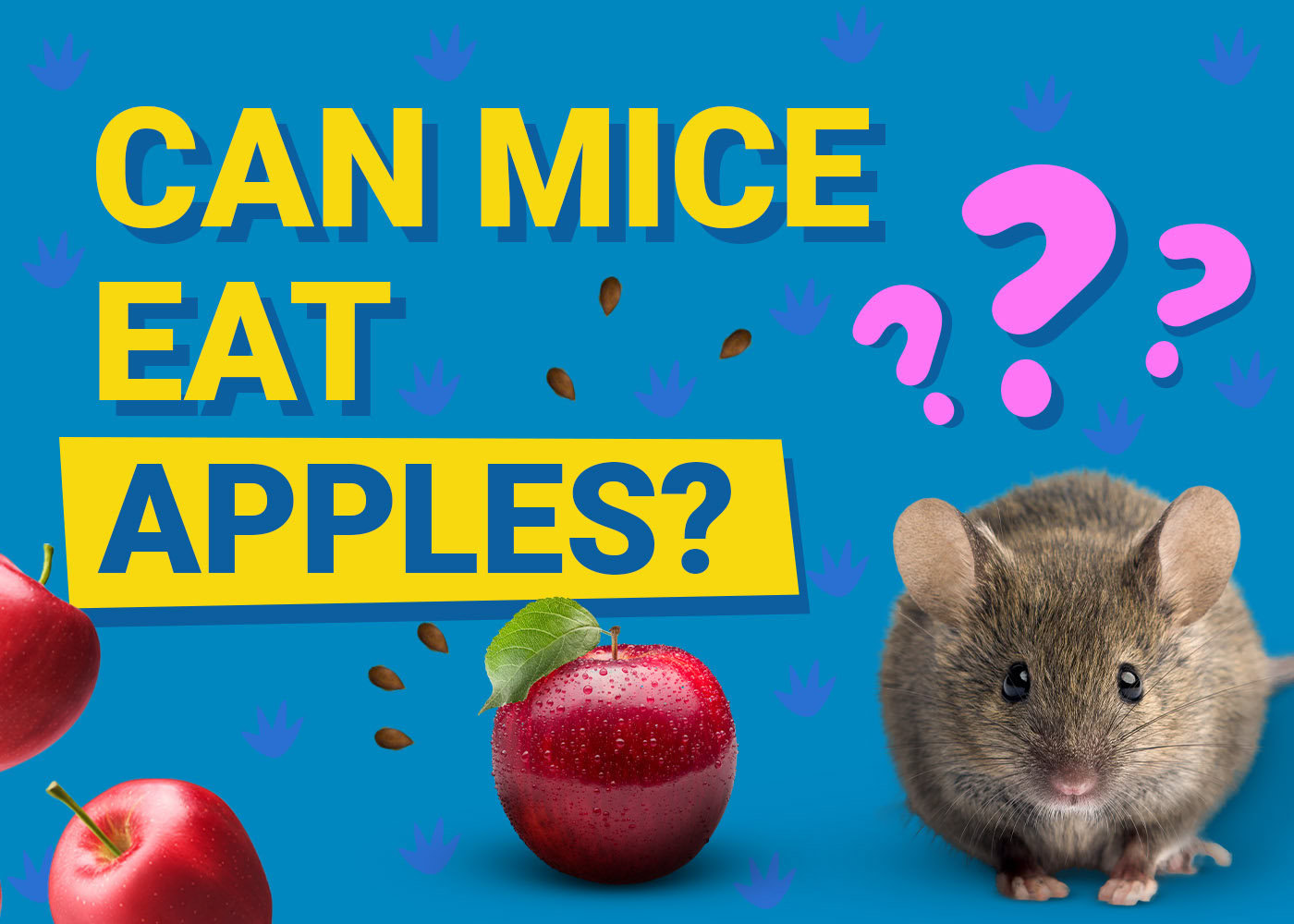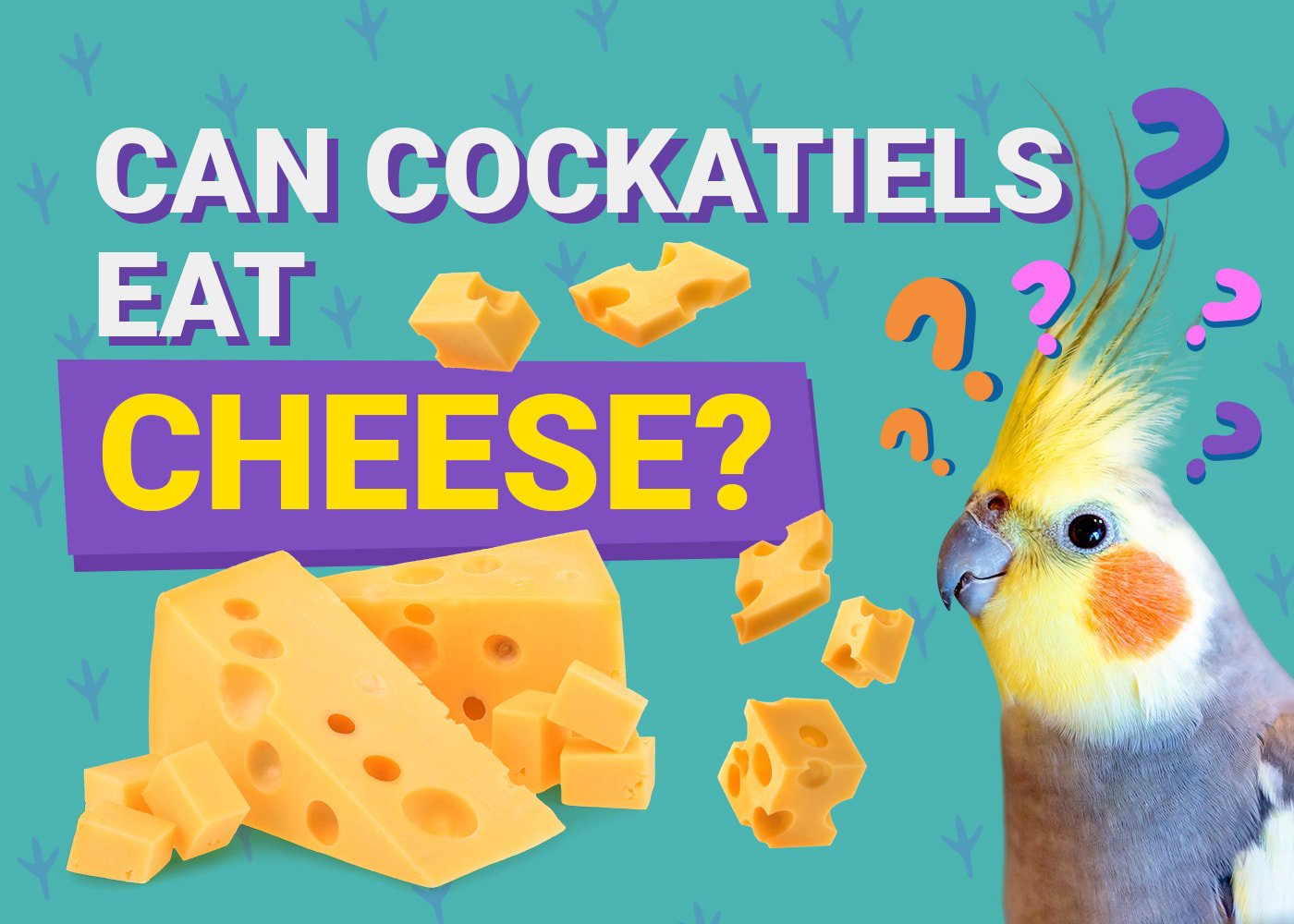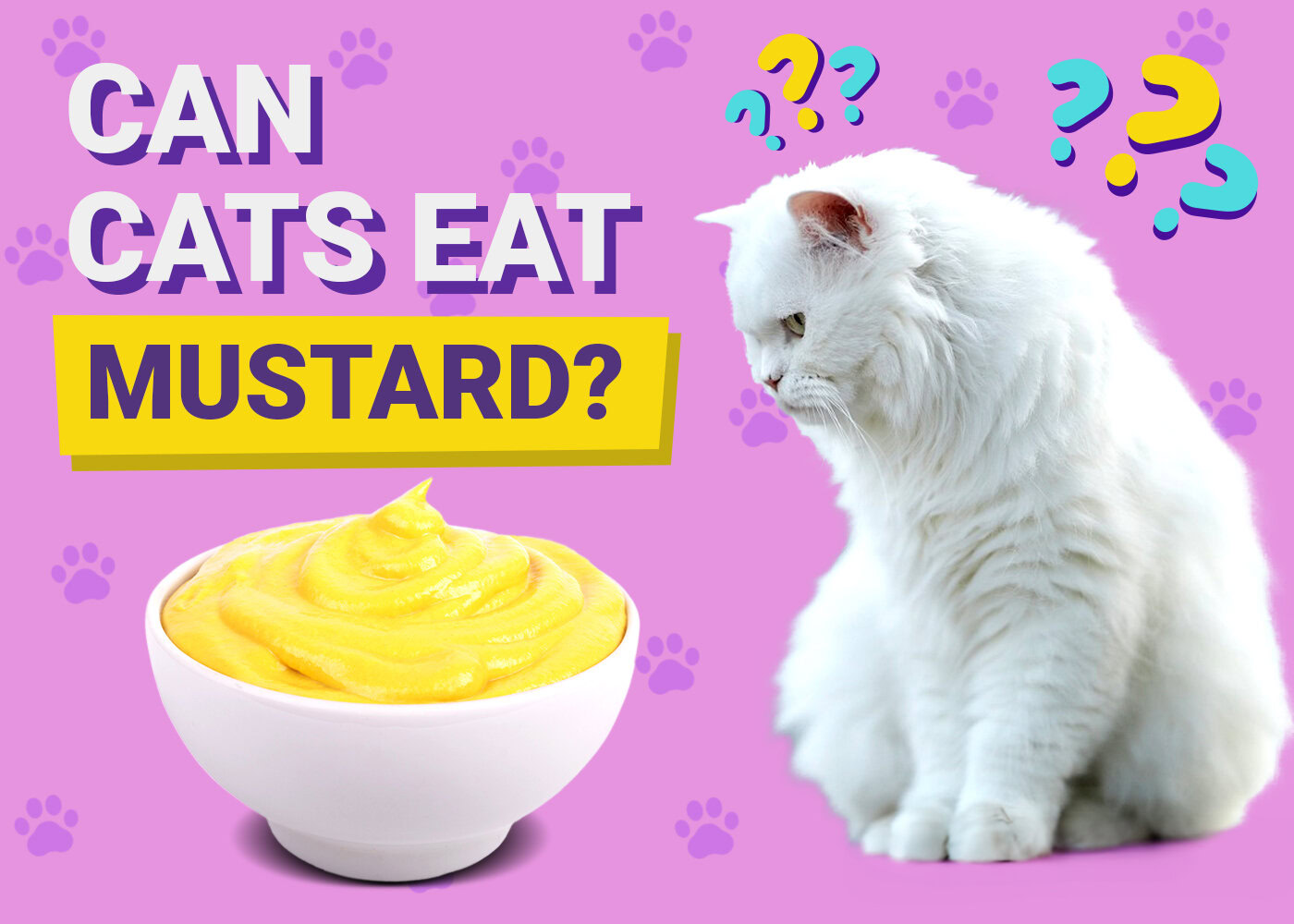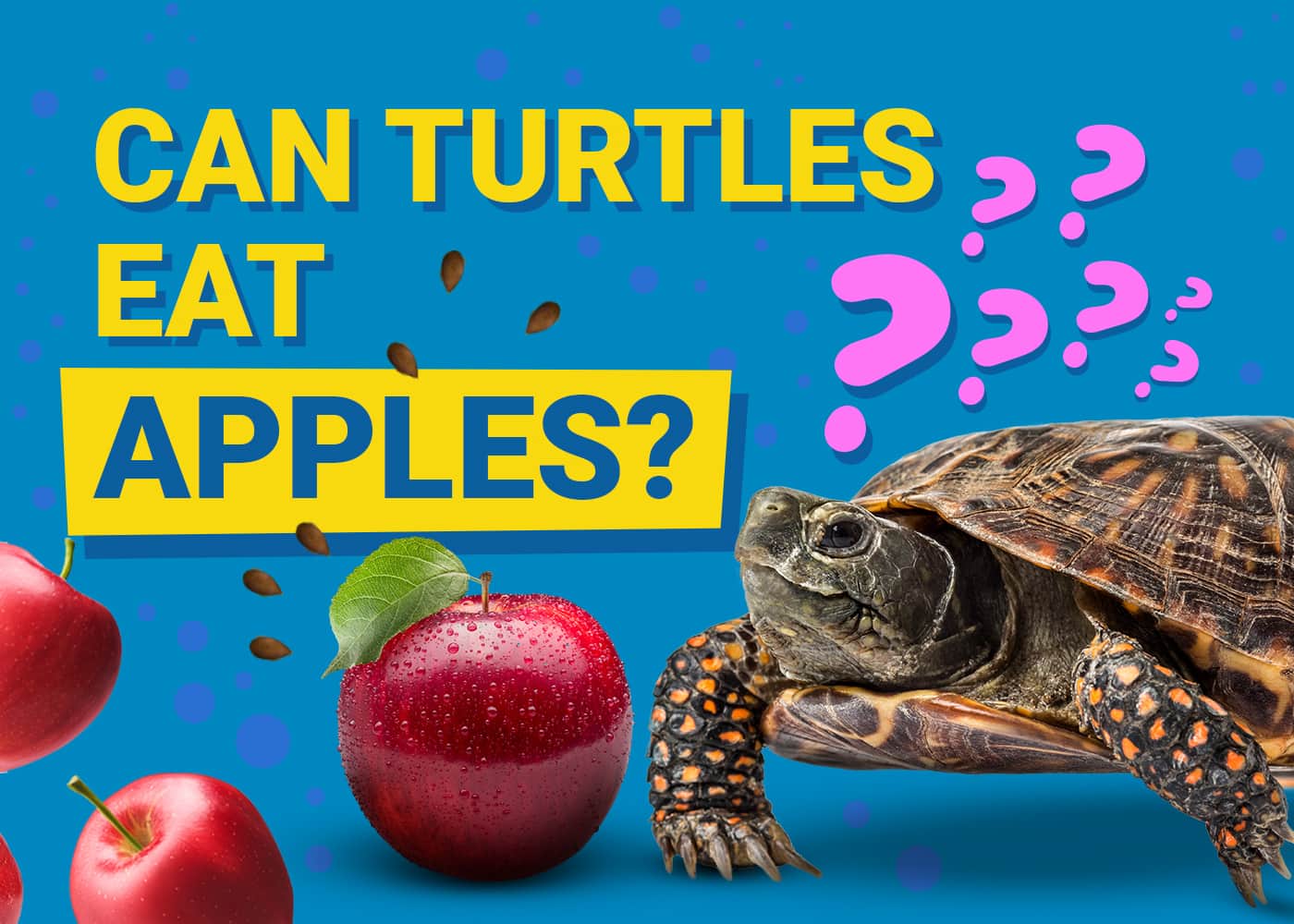VET APPROVED

The information is current and up-to-date in accordance with the latest veterinarian research.
Learn more »Click to Skip Ahead
Mice have a wide-ranging diet. In the wild, mice eat various foods, including plant matter, seeds, and insects. They’re opportunistic eaters, so they’ll eat whatever they come across.
Many fruits, including apples, are safe for them to eat. Apples are a perfectly fine option for most mice. They provide nutrients that mice need, though they are a bit higher in sugar than other snacks.
However, that doesn’t mean mice can live off apples alone. They need a varied diet to thrive, just like they would get in the wild.
Apples can be suitable snacks and make up a small percentage of your mouse’s diet. We recommend offering them only a few times a week, pairing them with other fresh foods when you do.

Where Do Apples Fit in a Mouse’s Diet?
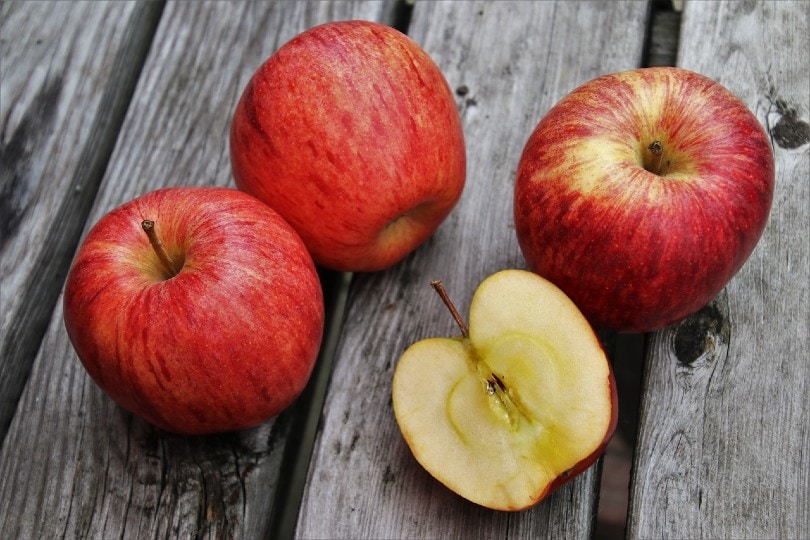
We recommend choosing a pelleted diet that is specifically designed for mice. You will find formulas that are advertised as being appropriate for a wide variety of rodent species, including mice, hamsters, rats, and gerbils. Some evidence suggests that while acceptable, they aren’t your best option. While rodents have some of the same nutritional needs, they have a few differences.
Instead, we recommend pellets specifically designed for pet mice, if possible. You should not use diets formulated for laboratory mice, as such diets often contain higher amounts of fats than would be ideal for a pet mouse.
The pellets also help keep your mouse’s teeth trimmed down, a significant problem for many mice. Like all rodents, a mouse’s teeth will continuously grow. If they aren’t worn down, the mouse will develop periodontal problems. Complimentary hay or a chew block helps keep their teeth trimmed.
Fruits and veggies should also be provided. They shouldn’t make up the bulk of your mouse’s diet, but they provide extra nutrition. Most mice also love fresh foods, especially if they are consuming a pelleted diet.
Apples can be included as one of the fruits. However, apples should only be offered occasionally. Instead, switch it out with other fruits and veggies, perhaps offering apples only once a week or so.
It is essential to remember that research on pet mouse nutrition is limited. Compared to laboratory mice, only a few studies have been conducted on a pet mouse’s nutritional needs. For this reason, a pellet diet alone is not considered sufficient for them by some welfare guides,1 but it serves as a good starting point for their nutrition.
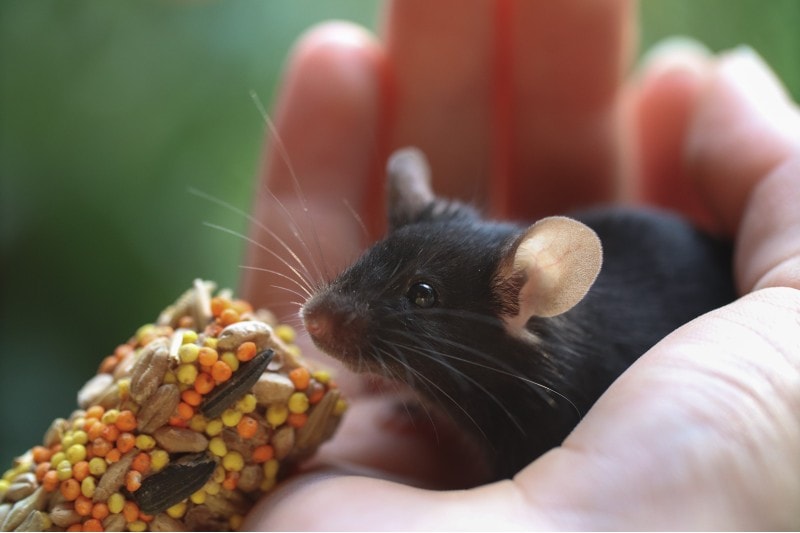
How Should You Offer Apples to Your Mouse?
You should not mix apples (or any other fresh fruit) with your mouse’s normal food. Often, they enjoy the fresh fruits more than their usual pellets. This leads to selective eating, where they will just pick out the foods that they like and leave everything else.
Instead, you should offer pellets sometime earlier in the day. They can sit in your mouse’s cage for a few hours since they don’t go bad quickly.
Then, offer apples and other fresh foods later in the day after the pellets have been available for a while, but be careful with the portion sizes. Your mouse shouldn’t be allowed to get full from apples alone. The key is for them to eat their pellets and only snack on the apples. Your mouse should not be fed apple seeds.
Apples provide hydration, but your mouse will still need a water bowl or bottle. You don’t want your mouse attempting to meet all their hydration needs with a few pieces of apple but don’t be surprised if they seem to drink less when offered juicy fruits.
How Much Apple Can a Mouse Eat?
Typically, mice should only be given a small amount of fresh apples daily.
A few large mice food blocks or a handful of pellets should be provided regularly every day. On top of this, you can serve a few fruit and veggie pieces a few hours later. They should only make up about 20% of your mouse’s diet, while pellets should largely make up the other 80%.
Apples should not make up this whole 20%; you can serve other fruits and veggies to give your mouse more variety.
Please note that these are just suggestions, and the needs of your pet may definitely differ from these recommendations. As such, it’s best to have your veterinarian’s input on your pet’s nutritional needs.


Conclusion
Apples are okay for mice to eat in small amounts. We recommend offering them occasionally as part of a mouse’s larger diet. Mice should eat a wide variety of foods, most of which should be pellets.
In the short term, apples shouldn’t do any harm to your mouse as long as they’re fed in moderation. They aren’t toxic and are well-loved by the rodents.
Related article:
- Can Rats Eat Apples? What You Need to Know!
- Can Mice Eat Carrots (Raw & Cooked)? What You Need to Know!
Featured Image Credit: Ulrike Leone, Pixabay
